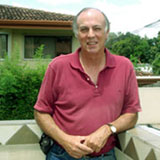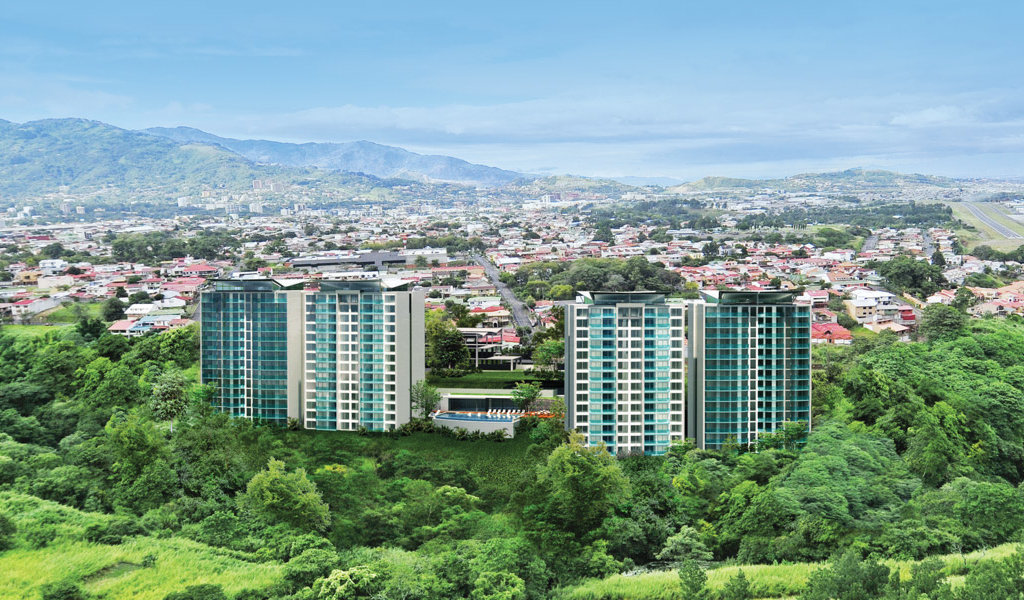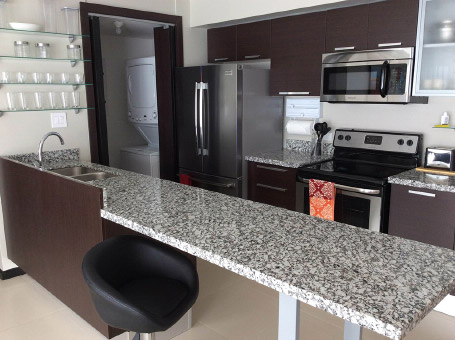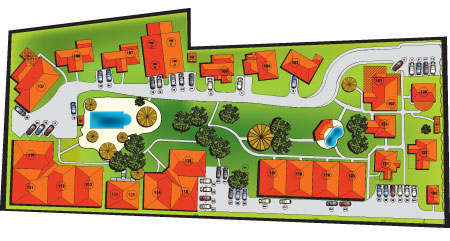Comments:
1) Economic outlook: CR will continue to grow but at a slower pace with more inflation likely. The outlook is tempered by the nearfterm election to the federal government. As shown below, as of now, there is no clear front runner.
2) Historical Government Deficit: regardless of who wins, there is no money.
3) Main Concerns of Electorate: employment, security and government corruption...
4) Hospital Metroploitano: a great alternative to the expat oriented expensive private hospitals... I have used Metropolitano as well as have friends and we all rate it excellent value. and now they are expanding their footprint...
1. Economy will show slow growth, according to forecast
By A.M Costa Rica staff
The growth of economic production during the first quarter of the year will be below 3.5%, according to the Performance Forecast of the Costa Rican Economy carried out by the Research Institute of Economic Sciences of the University of Costa Rica (UCR).
This growth is lower than that expected one year earlier when it was 4.18% during the same period.
According to Rudolf Lücke, a researcher at the Institute, such a low growth figure has not been seen since the beginning of 2015.
"The pace of growth of private consumption has weakened; the consumer is showing more caution. The weight of growth lies with exporters, although consumption is still important," said the specialist.
Lücke added that the expectation of higher prices and interest rates negatively influence spending.
Inflation, on the other hand, is projected to start the year growing at a faster pace than the previous year.
While the increase in the general level of prices was 1.58% during the first quarter of 2017, for the period between January and March 2018 it is expected to be between 2.5% and 3.5%.
Among the factors that explain the changes in the rhythm of year-on-year inflation is the drastic volatility in the domestic price of fuels and the increase in the price of food and raw materials.
The analysts of the UCR estimate that the passive basic rate could grow in the first months of this year reaching 6.5%. A year ago it was around 4.50%.
On Thursday the quarterly survey on business opinion and expectations for the first quarter was also presented. The results highlight less optimism among entrepreneurs.
The result of the Global Index of business expectations weakened by 2.4% from the previous quarter, standing at 53.6% and matches the second lowest value of the last 7 years in the same period.
The most striking downturns occurred in the agricultural, construction, manufacturing and other services sectors. Only trade showed more optimism due to the payments of school salaries in the public sector.
Regarding employment, 7 out of 10 companies expect to keep their current employment levels. Trade and manufacturing indicate that they may hire additional staff.
Despite this, many businessmen prefer to wait for the election results before making investment decisions, explained Gabriela González, one of the researchers.
The survey was conducted with a sample of 500 businessmen from all over the country during the month of November 2017.
2. Government ended 2017 with historical fiscal deficit
According to Finance Minister Helio Fallas, the government’s fiscal deficit reached ¢2.02 trillion (billion), the equivalent of 6.2% of the country’s GDP, by the end of 2017. This figure is the highest since 1994, when the State took on the bankruptcy of Anglo Bank.
Tax revenues for 2017 grew by 5.3%, the lowest figure in the last five years. Fallas explained that this is due to a fall in the collection of sales tax (it grew by just 2.8%), although the growth income tax (10%) is also lower than in 2016.
For the first time in history, revenue collection exceeded that of sales,” said the minister, who added that the greater growth of the economy in the service sectors and the drop in the import of vehicles had an impact on income from sales tax.
Spending increased to 9.1%. It also increased as a percentage of GDP, representing 20.7% in 2017, the highest since 2009. In this area, the government managed to reduce the growth of salaries, but not interest on debt.
When we arrived at the Government we found a series of structural problems to which we tried to give an answer, in order to make progress,” said Fallas.
Fallas believes that the implementation of the Virtual Tax Administration (ATV), the Unique Tax Registry (RUT), and the Electronic Invoice have modernized part of the collection.
3. CIEP reveals Costa Ricans’ concerns before elections
In addition to revealing that Fabricio Alvarado is in the lead, the survey of the Center for Research and Political Studies (CIEP) of the University of Costa Rica (UCR) revealed what are the most important problems for Costa Ricans in the face of the elections of February 4th: Unemployment, insecurity and corruption continue to occupy the first places.
Although in the electoral campaign various issues have emerged as priorities, political parties have not managed to position some of them as the central theme of their campaign, which has led to the absence of a clear discourse.
In the third quarter of 2017, the country’s unemployment rate got to 9.4 and was the highest reported in the year, although it was lower than the one from the same period in 2016. Despite this slight improvement, it still tops the list of concerns in the country. Nearly 30% of the respondents stated that this is the main problem that afflicts the country.
After unemployment, there’s insecurity and crime. According to data provided to the Center’s researchers, the country ended 2017 with the highest number of homicides in its history. 20% of the respondents ranked this problem second, although in October it had been surpassed by corruption, a problem that is currently in the third place.
The CIEP is surprised that, despite the country’s fiscal situation and the delays in transferring salaries and pensions in the public sector, this is not an issue of importance for Costa Ricans. Out of the 1,013 people interviewed, only 2% recognized it as a problem, that is, only 20 people approximately.
The last problem according to the survey is the infrastructure and the state of the roads.
4. Who Will Win the Elections in Costa Rica This February and Why?
While the last poll conducted by the Center for Political Studies and Investigation of the University of Costa Rica (CIEP-UCR) revealed that 27% of the voters in Costa Rica still have not decided who to vote for, the support for other candidates appears to be motivated by religious beliefs, tradition or populism.
On Tuesday, the poll by CIEP-UCR showed evangelical pastor Fabricio Alvarado, the candidate for the National Restoration Party (PRN), ahead in the elections race by 16%; back in December this candidate had a support of only 3% according to the poll carried out by this same entity, and it was Juan Diego Castro, candidate of the National Integration Party (PIN) who was ahead with 18%.
The sudden support received by Fabricio Alvarado is attributed to the recent ruling by the Inter-American Court of Human Rights regarding same-sex marriage and transgender rights, which states that the rights of same-sex couples should be recognized and guaranteed and that the transgender population must have the right to change their name and gender in their official documents, ruling which the Costa Rican government must comply with; however, many religious groups have spoken loud and clear about their opposition to this ruling, and they have then manifested themselves supporting a candidate that identifies with their position and defends what these group consider as “family and moral values”.
Reactions to the results of this poll came swiftly, and just a few hours later information platform Bloomberg highlighted a “crash” in Costa Rican bonds; however, the “Crash” was a drop of close to 1%, described by financial experts as a “normal” movement prior to an election process where the uncertainty becomes a key issue affecting the financial market; it has happened in other election processes in Costa Rica and other countries, like the USA for example prior to the Trump election.
Juan Diego Castro came in on second place in the CIEP-UCR poll published this Tuesday, a candidate that has been aggressive and critical about traditional political parties, particularly the National Liberation Party (PLN) he used to belong to; the fact that he promises “a change” makes him a popular choice.
An interesting fact to mention is that there have been several polls carried out by authorized companies in the past ten days, and the results of the same differ from one another, in some cases drastically, for instance, the poll by Cid Gallup shows Alvarez Desanti (PLN) in the first place, followed by Fabricio Alvarado and Juan Diego Castro; the poll by Opol Consultores published January 19 shows Alvarez in first place with 22%, followed by Juan Diego Castro and Fabricio Alvarado; and the poll by Demoscopía showed Alvarez first, followed by Rodolfo Piza (PUSC) and Juan Diego Castro in third position.
One thing is sure, none of the polls have any of the candidates close to reaching the 40% required to win the elections and all surveys coincide in the fact that the biggest group is the one that hasn’t decided who to vote for.
There’s only 10 days left before the elections in Costa Rica (February 4) and this situation makes us wonder, if that group of people that have not decided who to vote for will be motivated by their religious beliefs, their family’s political tradition, promises of a change that may or may not be possible or perhaps they are taking their time to really evaluate who has the best and more realistic proposals with regards to the problems the country faces: the fiscal crisis, corruption, insecurity, inequities, public transportation, etc. and the knowledge, capacity and team to make these proposals a reality. There’s 13 candidates to choose from.
5. Hospital Metropolitano Continues Expansion In Costa Rica
The Hospital Metropolitano (Metropolitan Hospital) in Costa Rica continues its growth and announced the opening of between 15-20 service centers in 2018; it also signed a collaborative agreement with Sanford Health.
The Metropolitan Hospital was born in 2010, and Grupo Montecristo is the majority owner, currently it has more than 30 service centers between clinics, hospitals and corporate doctor offices. Francis Durman, spokesperson of the Metropolitan Hospital, confirmed they will continue with their expansion plans with new services both in and out of the Great Metropolitan Area.
The announcement was also made that Sanford World Clinic is providing strategic and operational support to the Hospital Metropolitano health system as it experiences this dynamic growth across the country.
Sanford World Clinic was launched in 2007, supported by philanthropy, the initiative is designed to foster partnership with health care leaders in the development of sustainable services around the world.
“With these partnerships, we are creating unique opportunities for shared learning,” said Kelby Krabbenhoft, president and CEO of Sanford Health. “This is not something we are pursuing for financial gain, but we believe this type of collaboration will help further our mission of health and healing.”
In the case of the Metropolitan Hospital, Sanford will share knowledge and medical practices to better the attention in the three excellence centers developed by Hospital Metropolitano: oncology, mental health and cardiology. The international firm will also support the objective of performing surgeries in the most efficient way possible and in this way offering quality medical services with lower costs.
The Hospital will share knowledge with Sanford World Clinic regarding its prepaid medical care service MediSmart.
“I believe we will also contribute with them in the topic of medical tourism. We can support them in procedures that are very expensive in the United States; in Costa Rica we can provide the same level of excellence as they offer but with controlled costs”, explained Durman.








